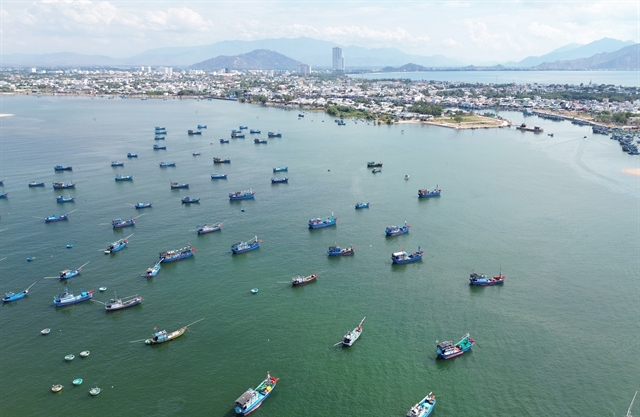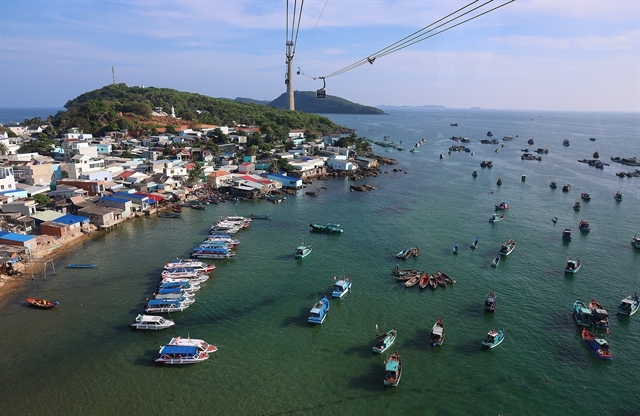 Politics & Law
Politics & Law

 |
| Phú Quốc Island in Kiên Giang is seen as a highly potential destination for investment. — VNA/VNS Photo |
HCM City — Southern localities have made numerous strategies toward stable and sustainable marine economic development making the most of their advantages in aquaculture, tourism, seaport and oil and gas mining.
Prime Minister Phạm Minh Chính recently approved a decision on the planning of Kiên Giang Province in the 2021-2030 period, with a vision to 2050, in which it strives to become a strong marine economic centre in the country.
According to the vice chairman of the provincial People's Committee Lê Quốc Anh, the province, which boasts over 140 islands, and a fishing area of more than 63,200 sq.km, holds a key position for fisheries in the Mekong Delta and the whole country, and has great potential to develop the marine economy.
With numerous high-value aquatic species, Kiên Giang is determined the marine economy will be the main development orientation, with a focus on effective and sustainable development of marine aquaculture in an industrial and modern direction, said Anh.
Like Kiên Giang, the southernmost province of Cà Mau is also aiming to be a key marine economic development locality.
Lê Văn Sử, vice chairman of the provincial People's Committee, said that the province aims to build modern and smart fisheries, agriculture and forestry, and develop production links following the organic eco-agricultural value chain.
Attention will be paid to developing high-tech, effective and sustainable marine farming, applying science, technology and innovation in post-harvest preservation and deep processing to increase the added value of seafood.
In addition, Cà Mau has a strategy to protect resources and the ecological environment, and firmly ensure national defence, security and sovereignty over the country’s sea and islands.
It is also focused on sustainable development and management of the marine economy in an integrated and interdisciplinary manner with the engagement of the residential and business communities.
Meanwhile, the southern province of Bà Rịa-Vũng Tàu has formed a seaport system classified as a special national port.
The locality boasts Cái Mép-Thị Vải, one of the 20 deep-water ports with the biggest exploitation potential in the world.
The port is capable of receiving ships of more than 200,000 tonnes, making it convenient for Bà Rịa-Vũng Tàu to develop maritime transport in the region in particular and Vietnamese logistics in general.
According to the provincial People's Committee, to take advantage of and promote the efficiency of the seaport system, the province has also planned and built a system of industrial parks linked with seaports.
It has 15 industrial parks with a total area of about 8,510 hectares.
Secretary of Kiên Giang’s Party Committee Đỗ Thanh Bình said that the province currently has favourable policies to develop the province’s waters, islands and coastal areas so as to become a key economic zone with seaports of international scale to facilitate trade with regional and international partners.
At the same time, it will apply preferential mechanisms and policies related to foreign and domestic investments in Phú Quốc – its most famous island.
To date, Phú Quốc has attracted 286 investment projects worth over VNĐ375 trillion (US$14.7 billion) in total. Of them, 47 have been put into operation, and construction is underway on 78 others. — VNS




